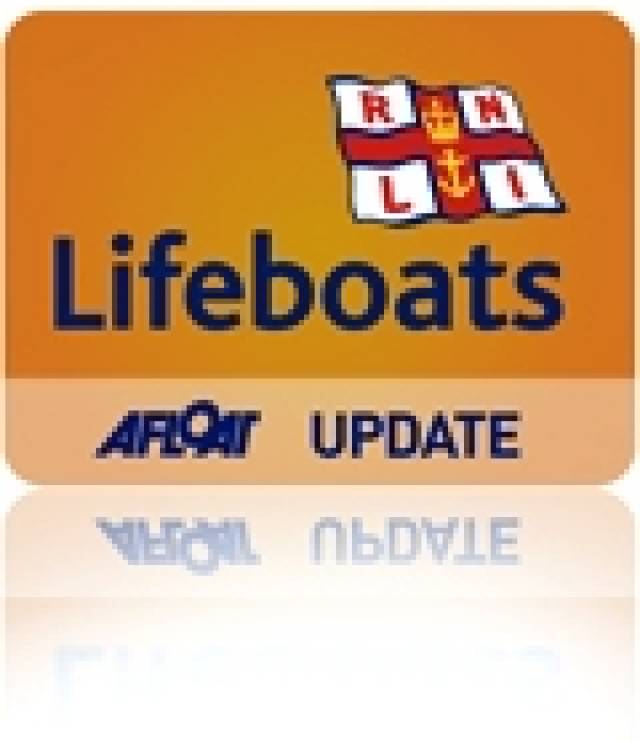At just before 1.00 pm on Sunday, a 999 call from the Towy Boat Club reported three kayakers struggling in the fast-flowing river Towy having capsized and become parted from their double sit-on kayaks in wind over tide conditions.
It later transpired that the three people in the water were from a party of kayakers who had earlier set off from Carmarthen, with the intention of following the river downstream almost to its estuary.
Only as the incident progressed did it become clear that eleven people in total had set off at staggered times, with the least experienced going first. On their journey down-stream two of the double kayaks lost paddles and sustained broken rudders.
Subsequent information indicated that paddlers were coming ashore on both east & west river banks, some still onboard their kayaks, others were in the water.
In response to the difficulties presented in establishing numbers of persons missing and considering that some may have been taken down through the estuary towards open sea, the Coastguard sent the following units to the area:
Rescue helicopter R169 from Chivenor; Burry Port RNLI inshore lifeboat; Tenby RNLI inshore lifeboat and all weather lifeboat; South Pembroke Coastguard Sector Manager together with Coastguard teams from both east and west of the estuary; the Burry Port and Llanstephan Coastguard Rescue Teams.
Eventually all eleven paddlers, comprising a group of friends whose ages varied from teenage years to a 64 year old, managed to make the safety of shore unaided, where they were met by Coastguard teams.
The rescue helicopter maintained a sweep of the river until all were confirmed safe.
One 64 year old male was taken to Glangwilli Hospital, Carmarthen by ambulance, having
ingested river water and exhibiting signs of shock.
Milford Haven Coastguard Watch Manager Hilary Orton said
“The kayaking trip would seem to have been inadequately organised, with no destination given at the outset – just a passing reference to it being near a sandbank.
“Several of the paddlers were totally inexperienced and inadequately kitted-out. They had no communications and no flares were carried. The group had not informed any authority of their intentions. During the incident it proved difficult to establish from anyone in the party exactly how many people were involved. Suitable safety advice was delivered to the kayaking group by Coastguards at scene.”
Coincidently, Milford Haven Coastguard co-ordinated an earlier incident today, which also involved a kayak. At 11.00 am this morning two people on board an inflatable kayak, were reported struggling in the strong currents and confused tides of Ramsey Sound.
Hilary added:
“Kayakers are advised to adhere to safety advice: making sure they are effectively kitted out with suitable clothing, safety & communications equipment; that they give advance warning of their intentions and take into account weather and sea conditions and forecasts. Organisers must adequately brief the party - including any emergency procedures.
They should also be "fit for purpose" - that is both kayaks and kayakers must be adequate to what is planned, that they are working within their capabilities.”
































































